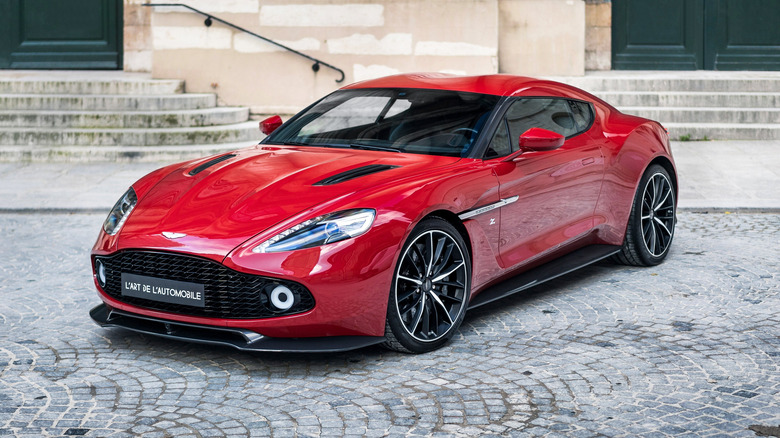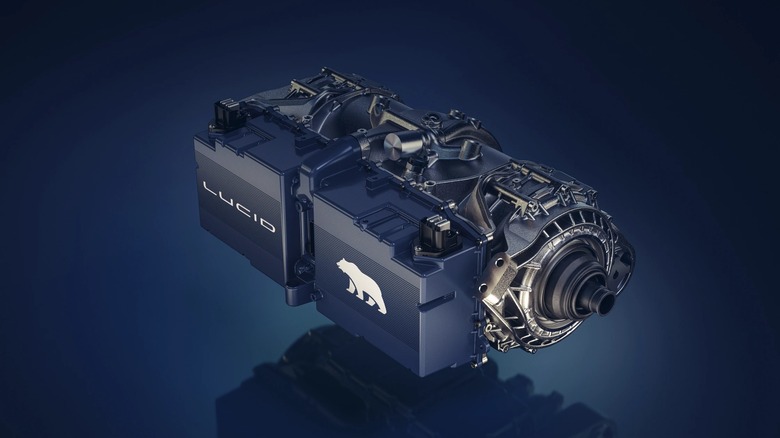Aston Martin Cuts A Deal To Use Lucid's EV Tech In Future Cars
In an interesting development, American electric carmaker Lucid Motors — the same company behind the Lucid Air — is joining forces with British carmaker Aston Martin, famous for its luxury sports cars and grand tourers.
As part of a $450 million arrangement, Lucid will supply Aston Martin with electric powertrains and battery systems that will power the British marque's future electric cars. The deal will grant Aston Martin direct access to Lucid's state-of-the-art electric vehicle powertrain and battery systems. The press release announcing the deal also revealed Aston Martin's plans to develop an all-new electric vehicle platform that will be based on the battery and powertrain technologies sourced from the American EV manufacturer.
This new, under-development platform from Aston Martin is expected to receive Lucid's popular twin motor drive unit, renowned battery technology, and the revolutionary Wunderbox charging tech that allows EVs to add 100 miles of driving range with a short five-minute charge. The technology also advertises adding 300 miles of range in less than 22 minutes of charging time.
Aston Martin EVs of the future will also integrate several other Lucid-exclusive technologies like microjet stator cooling, wave winding, its advanced heat exchanger technology, and optimized coolant flow rate. To preserve Aston Martin's supercar DNA, the Lucid-derived powertrain and battery tech will also be upgraded to generate higher power, effectively promising exhilarating performance.
First Aston Martin EVs by 2025?
The deal between Aston Martin and Lucid seems to be a win-win for both the companies. For Aston Martin, the collaboration will help it accelerate the pace of the company's EV development, which had fallen behind most of its competition. More importantly, this deal will allow Aston Martin to achieve its target of bringing its first-ever pure EV car to the market before the end of 2025.
For Lucid, the arrangement couldn't have come at a better time, given that it's been struggling to meet delivery expectations and needed some fresh capital investment to fulfill its existing commitments. The deal also marks Lucid's transition from a pure EV carmaker to the role of a supplier as well — potentially opening up a much-needed additional revenue stream for a company that recently needed to lay off 18% of its workforce.
For Aston Martin fans and car enthusiasts, it'll be interesting to see the products that come out of this unexpected collaboration of two completely different auto brands. Given that the first of Aston Martin's EVs won't make it to the production stage by at least 2025, we have some time to go before we get to see the first of these prospective Lucid-powered Aston Martin EVs.

